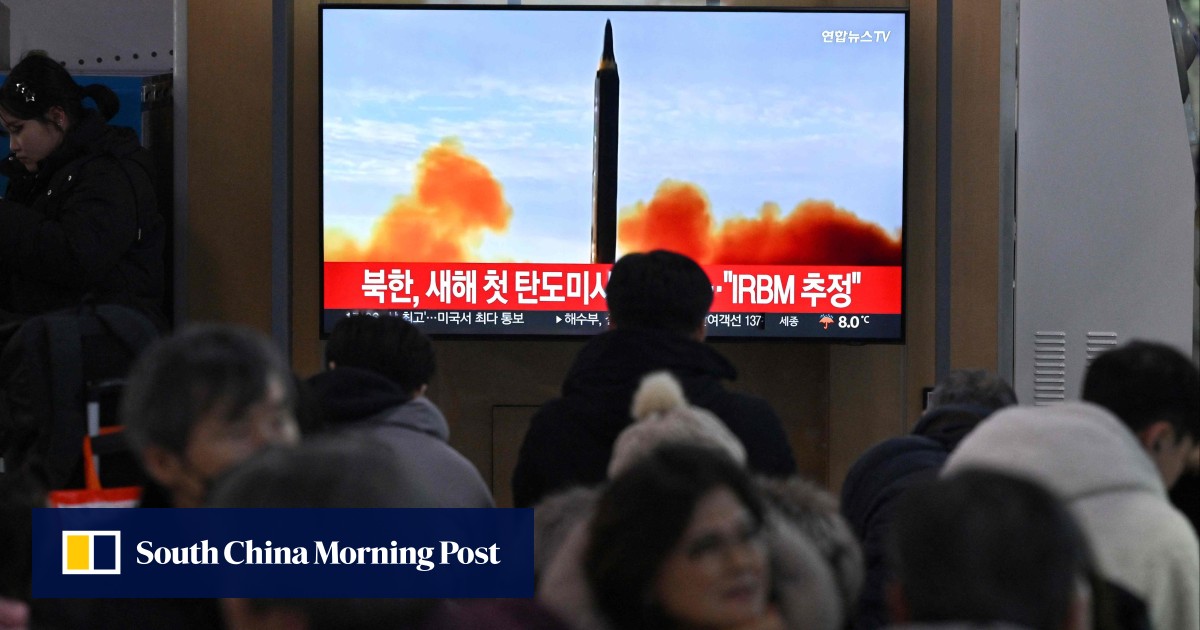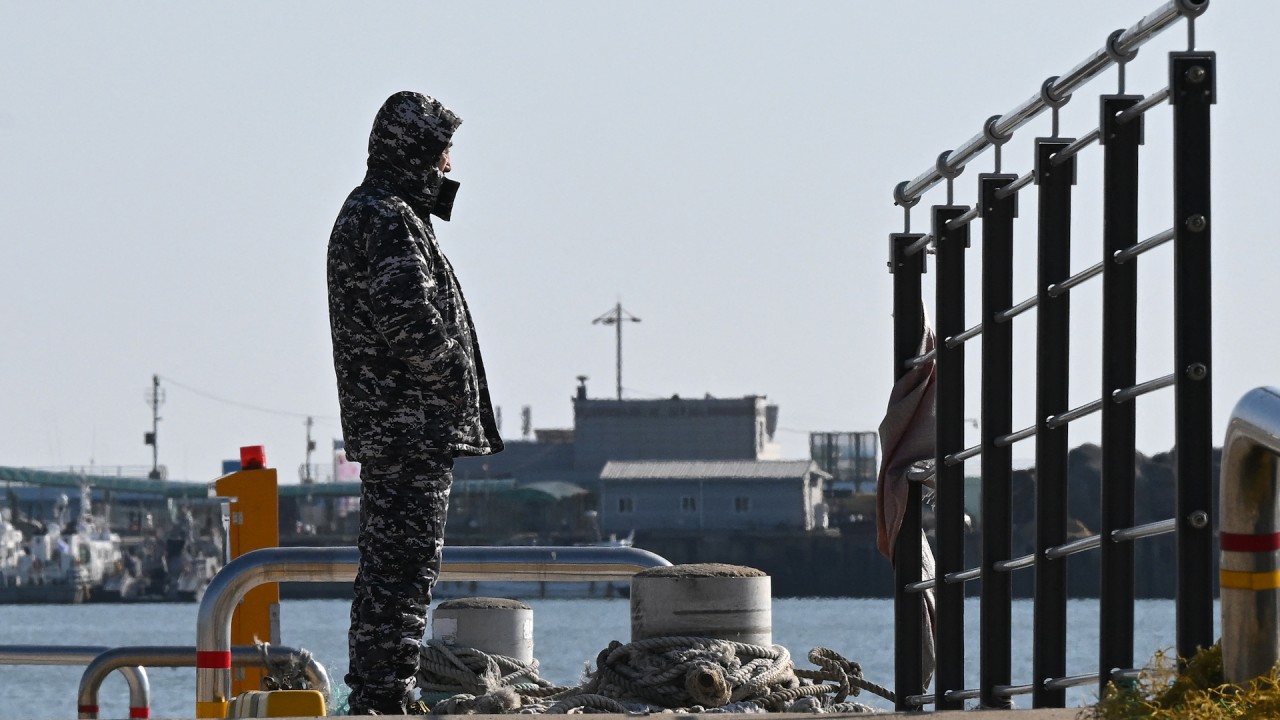“Our military detected one suspected intermediate-range ballistic missile launched from the Pyongyang area towards the East Sea around at 14:55,” Seoul’s Joint Chiefs of Staff (JCS) said in a statement, referring to the body of water also known as the Sea of Japan.
The missile flew 1,000 kilometres (621 miles), the JCS added, saying that authorities in Seoul, Washington and Tokyo were analysing the specifications.
“We strongly condemn the latest missile launch by North Korea as it is a clear provocation that seriously threatens peace and stability on the Korean peninsula,” it said.
“Our military maintains full readiness by closely sharing information related to the launched ‘North Korean missile’ with the US and Japan,” the JCS said.
South Korea on alert for clashes, nuclear test as Kim threatens ‘major ripple’
South Korea on alert for clashes, nuclear test as Kim threatens ‘major ripple’
Japan’s coastguard also confirmed a suspected missile launch by North Korea, citing information from the country’s defence ministry, and warning vessels to take care.
The apparent test comes days after North Korea conducted a series of rare live-fire drills near the maritime border with the South, prompting counter-exercises and evacuation orders for some South Korean border islands.
“The historic time has come at last when we should define as a state most hostile toward the Democratic People’s Republic of Korea the entity called the Republic of Korea (South Korea),” Kim was reported on Wednesday as saying by the official Korean Central News Agency (KCNA).
Analysts said at the time that the shift was significant, signifying a shift in Pyongyang’s approach to Seoul into “ultra-hawkish mode”.
Last year, Pyongyang also successfully put a reconnaissance satellite into orbit, after receiving what South Korea claimed was Russian help, in exchange for arms shipments for Moscow’s war in Ukraine.
Why North Korea is upping the ante through missile tests ahead of US election
Why North Korea is upping the ante through missile tests ahead of US election
Top Russian officials, including Moscow’s defence and foreign ministers, also visited North Korea last year, with the flurry of trips both ways fanning concern among Kyiv’s allies over the possibility of a potential arms deal.
KCNA said on Sunday that Pyongyang’s foreign minister would visit Russia this week.
In 2023, Kim test-fired a string of advanced intercontinental ballistic missiles (ICBMs) including a purported solid fuel version.
At Pyongyang’s year-end policy meetings, Kim threatened a nuclear attack on the South and called for a build-up of his country’s military arsenal ahead of armed conflict that he warned could “break out any time”.
Pyongyang declared itself an “irreversible” nuclear power in 2022 and has repeatedly said it will never give up its nuclear weapons programme, which the regime views as essential for its survival.

